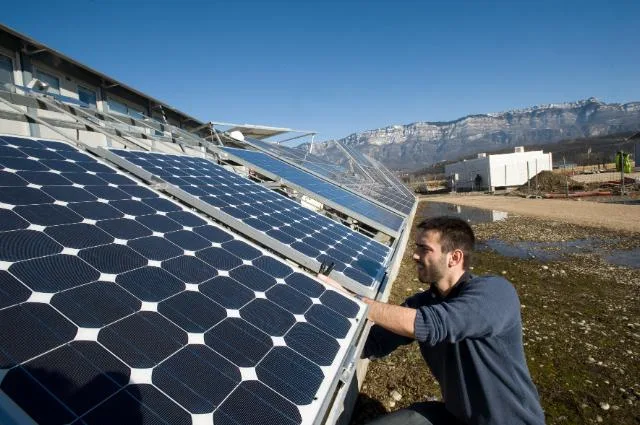Brussels – Massive investment in renewables but not only: Interconnections, clean technology, and related supply chains are the areas to channel “massive investment” in the coming years, both public and—especially—private. The President of the European Commission, Ursula von der Leyen, is reiterating this from the stage where the 50th anniversary of the International Energy Agency (IEA) is being celebrated in Paris, France, in a long speech in which she took stock of almost two years of Russia’s energy war on Ukraine and Europe as a whole.
“We will have to mobilize the private sector, with whom we are working right now, to intensify the dialogue,” said the leader of the European executive, who is working these days to present to EU member states and market players by the end of the year guidelines to unlock private investment in energy efficiency, where Europe’s most serious investment shortfalls are, estimating at least 165 billion euros per year as the additional amount needed by 2030 to meet the EU’s energy efficiency targets. “In too many parts of the world, the cost of renewable energy and the cost of capital for renewable energy are still prohibitive,” von der Leyen warned further, recalling that through NextGenerationEU and REPowerEU, the EU has so far “supported the energy transition goals with 150 billion euros.”
The anniversary of the IEA is an opportunity for von der Leyen to claim to have won the energy war against the Kremlin. Nearly two years after the territorial invasion of Ukraine, the European Union says it is out of the crisis thanks to “a structural” and comprehensive response to what the Kremlin triggered. Two years ago, the president recalls, “One in five units of energy consumed in the EU came from Russian fossil fuels. Today, it is one in twenty. We get more energy from renewable sources than from Russia. In 2023, we will produce more electricity from wind than from gas. Putin’s attempt to blackmail our Union has failed, claimed von der Leyen.
The Paris stage is also a way of warning that “the pace of the transition is still too slow. If we want to keep the 1.5-degree target within reach, the world must triple its renewable energy capacity and double its energy efficiency by 2030,” he added, recalling the global initiative signed at COP28 in Dubai for clean energy and energy efficiency. “The targets will not only help us phase out fossil fuels faster than expected but also give predictability to investors and create new economies of scale.”
Also present at the two-day ministerial meeting on behalf of the EU was European Energy Commissioner Kadri Simson, who participated in a series of side events. Tomorrow, the commissioner will participate in the IEA ministerial meeting and government-industry dialogue, where she will stress the importance of focusing on electricity grids and promote the EU Action Plan for Grids. Commissioner Simson will also hold bilateral meetings with Ukrainian Energy Minister German Galushchenko, Canadian Energy and Natural Resources Minister Jonathan Wilkinson, and Fortescue CEO Andrew Forrest on the sidelines of the IEA ministerial meeting.
English version by the Translation Service of Withub








